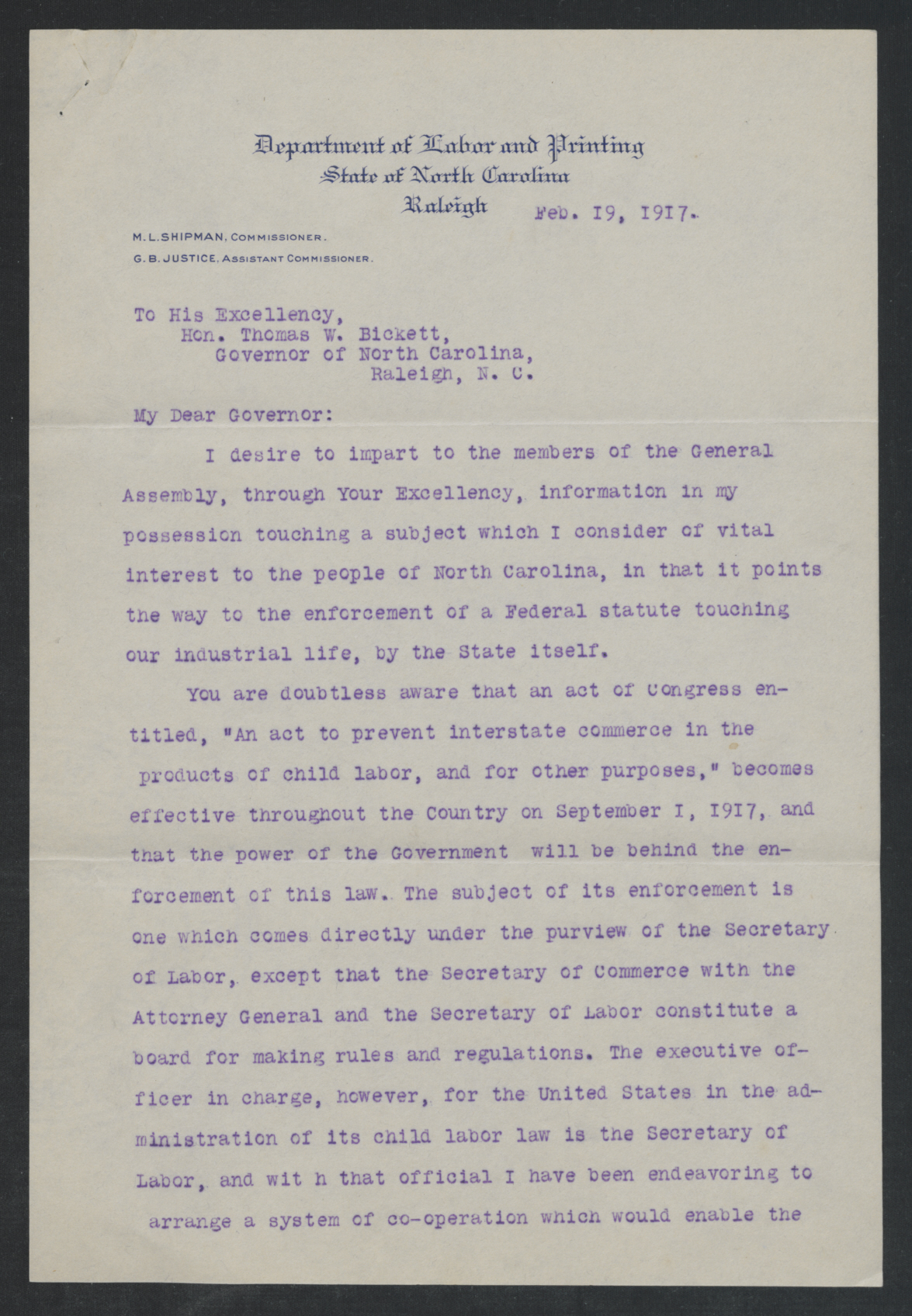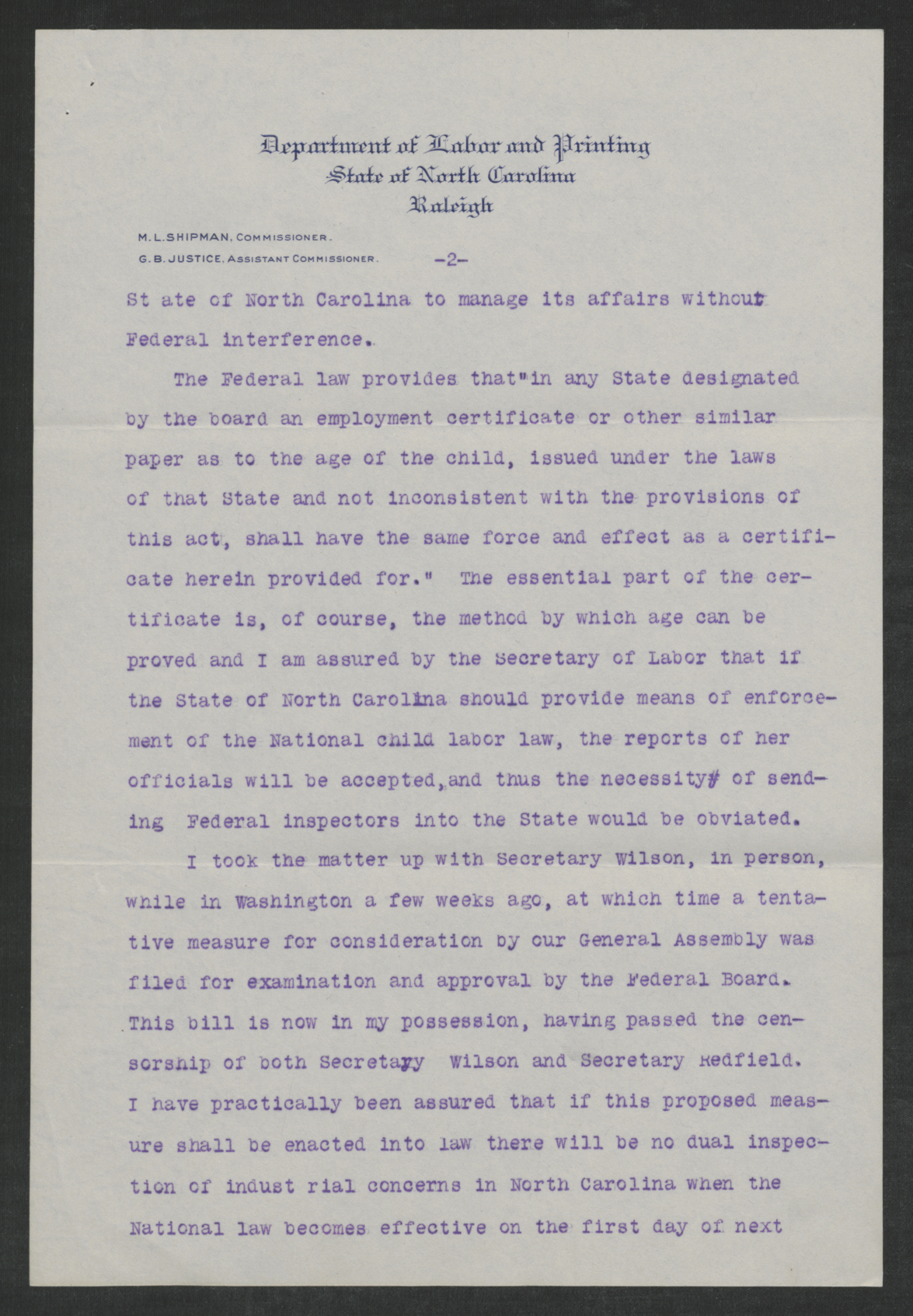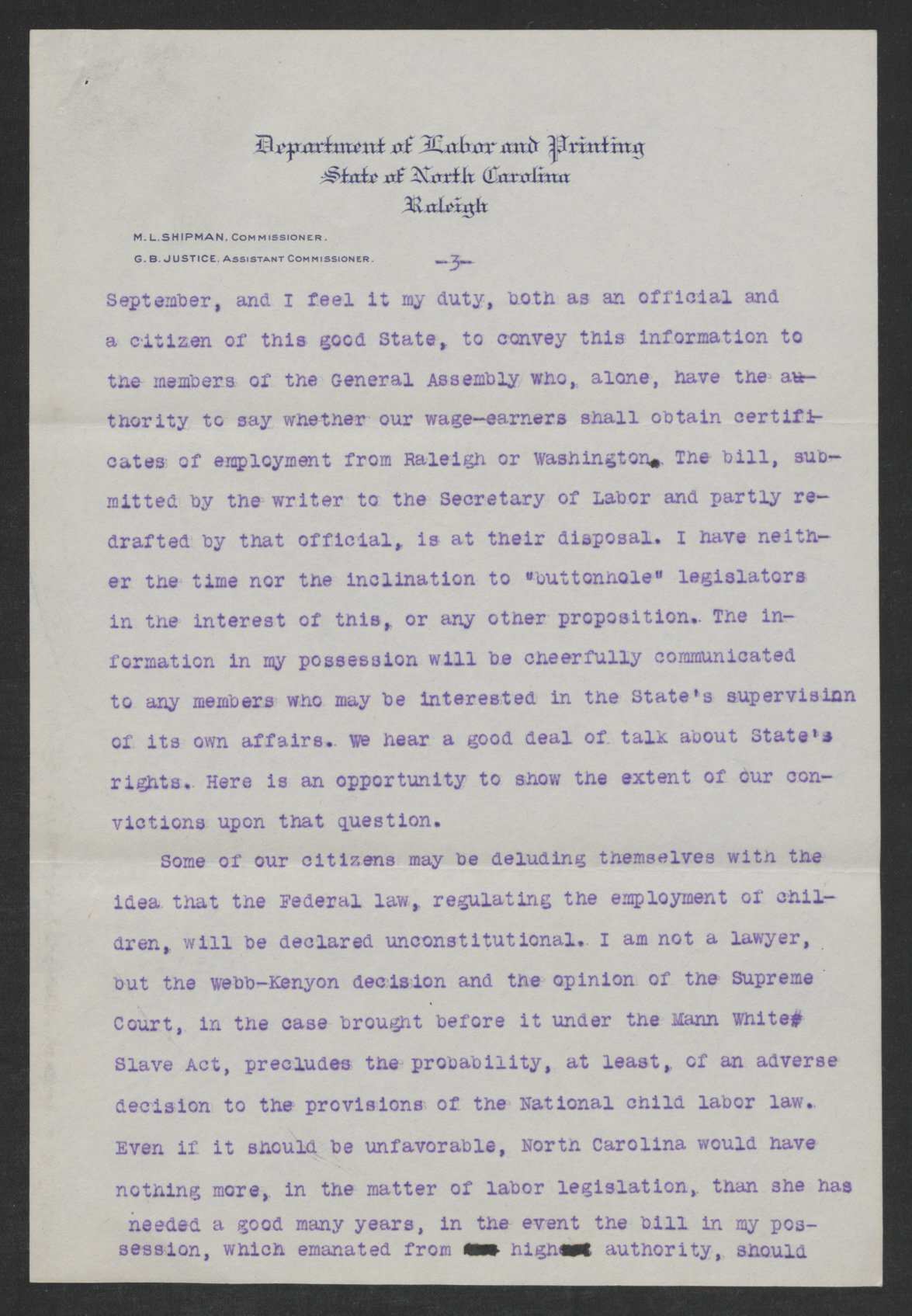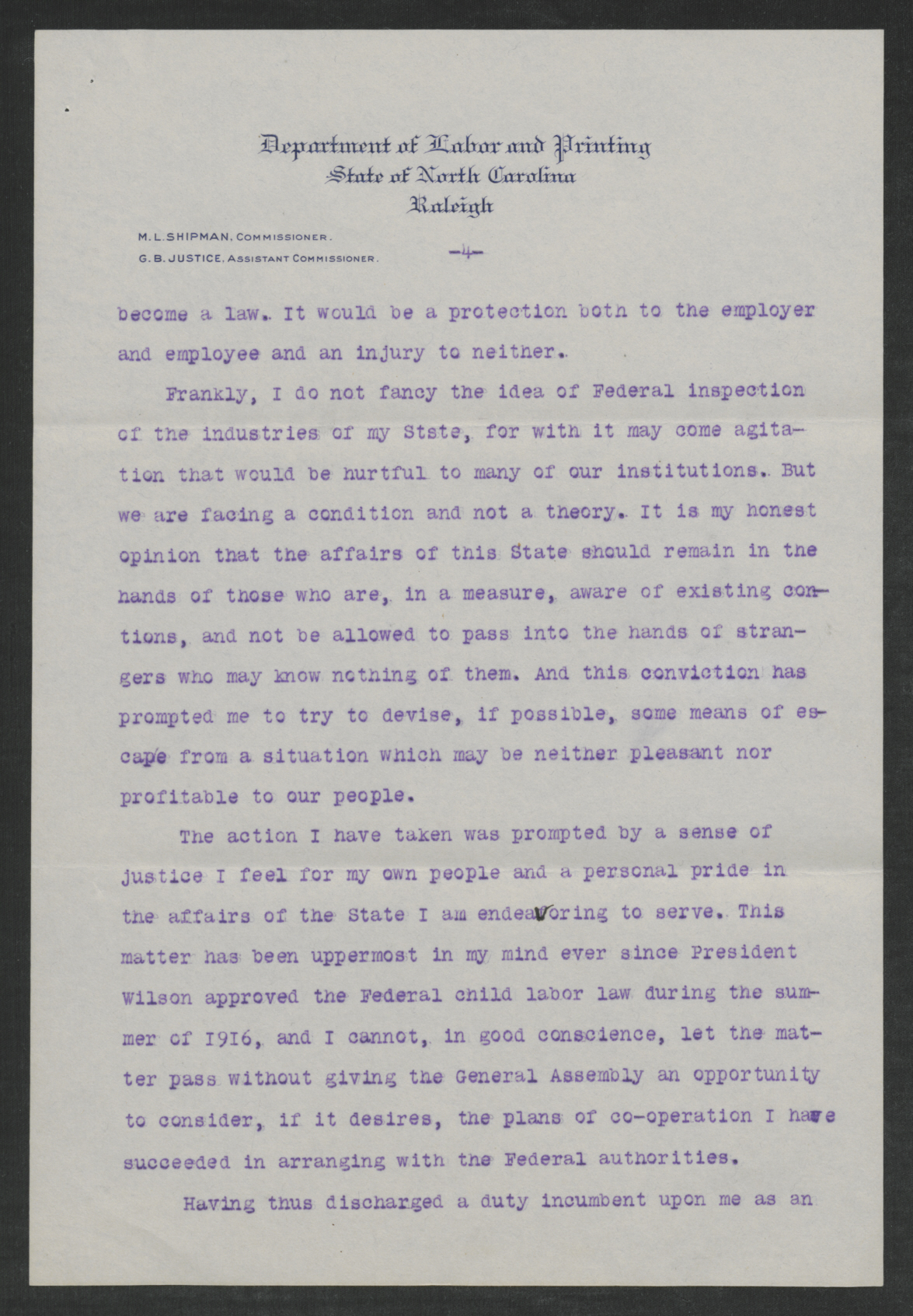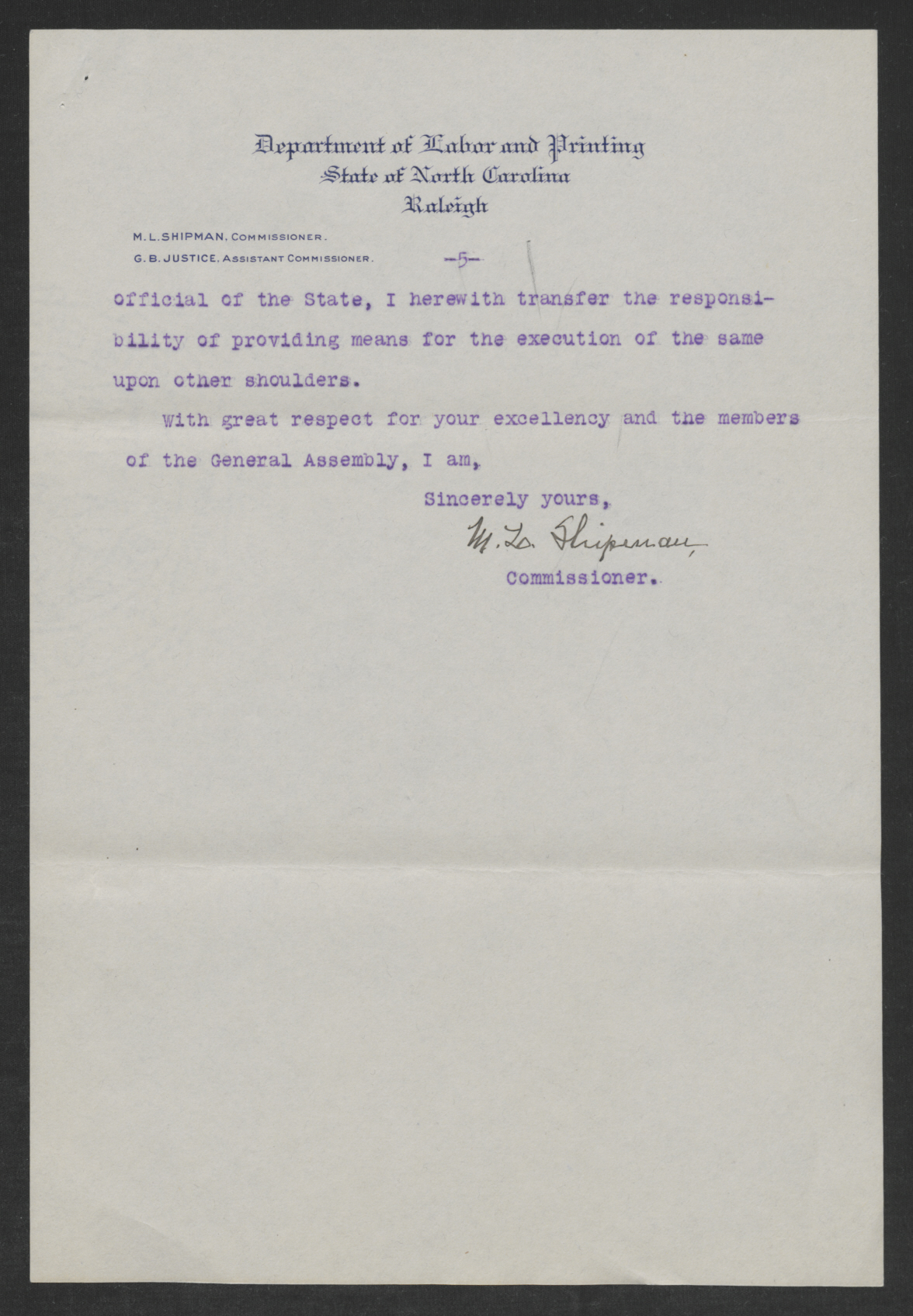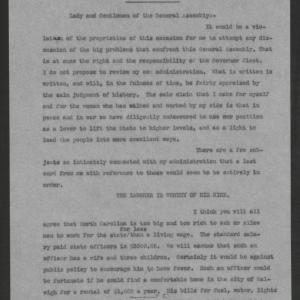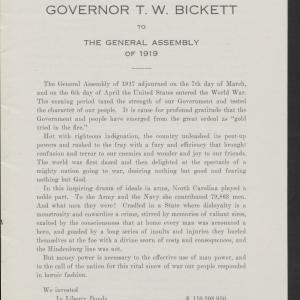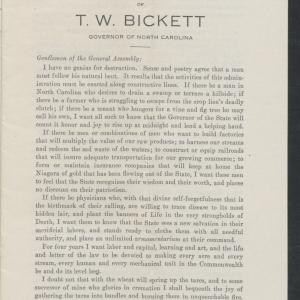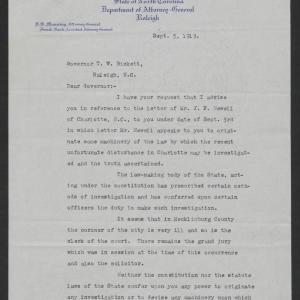Department of Labor and Printing
State of North Carolina
Raleigh
Feb. 19, 1917.
To His Excellency,
Hon. Thomas W. Bickett,
Governor of North Carolina,
Raleigh, N.C.
My Dear Governor:
I desire to impart to the members of the General Assembly, through Your Excellency, information in my possession touching a subject which I consider of vital interest to the people of North Carolina, in that it points the way to the enforcement of a Federal statute touching our industrial life, by the State itself.
You are doubtless aware that an act of Congress entitled, “An act to prevent interstate commerce in the products of child labor, and for other purposes,” becomes effective throughout the Country on September 1, 1917, and that the power of the Government will be behind the enforcement of this law. The subject of its enforcement is one which comes directly under the purview of the Secretary of Labor, except that the Secretary of Commerce with the Attorney General and the Secretary of Labor constitute a board for making rules and regulations. The executive officer in charge, however, for the United States in the administration of its child labor law is the Secretary of Labor, and with that official I have been endeavoring to arrange a system of co-operation which would enable the State of North Carolina to manage its affairs without Federal interference.
The Federal law provides that “in any State designated by the board an employment certificate or other similar paper as to the age of the child, issued under the laws of that State and not inconsistent with the provisions of this act, shall have the same force and effect as a certificate herein provided for.” The essential part of the certificate is, of course, the method by which age can be proved and I am assured by the Secretary of Labor that if the State of North Carolina should provide means of enforcement of the National child labor law, the reports of her officials will be accepted, and thus the necessity of sending Federal inspectors into the State would be obviated.
I took the matter up with Secretary Wilson, in person, while in Washington a few weeks ago, at which time a tentative measure for consideration by our General Assembly was filed for examination and approval by the Federal Board. This bill is now in my possession, having passed the censorship of both Secretary Wilson and Secretary Redfield. I have practically been assured that if this proposed measure shall be enacted into law there will be no dual inspection of industrial concerns in North Carolina when the National law becomes effective on the first day of next September, and I feel it my duty, both as an official and a citizen of this good State, to convey this information to the members of the General Assembly who, alone, have the authority to say whether our wage-earners shall obtain certificates of employment from Raleigh or Washington. The bill, submitted by the writer to the Secretary of Labor and partly redrafted by that official, is at their disposal. I have neither the time nor the inclination to “buttonhole” legislators in the interest of this, or any other proposition. The information in my possession will be cheerfully communicated to any members who may be interested in the State’s supervision of its own affairs. We hear a good deal of talk about State’s rights. Here is an opportunity to show the extent of our convictions upon that question.
Some of our citizens may be deluding themselves with the idea that the Federal law, regulating the employment of children, will be declared unconstitutional. I am not a lawyer, but the Webb-Kenyon decision and the opinion of the Supreme Court, in the case brought before it under the Mann White Slave Act, precludes the probability, at least, of an adverse decision to the provisions of the National child labor law. Even if it should be unfavorable, North Carolina would have nothing more, in the matter of labor legislation, than she has needed a good many years, in the event the bill in my possession, which emanated from high authority, should become a law. It would be a protection both to the employer and employee and an injury to neither.
Frankly, I do not fancy the idea of Federal inspection of the industries of my State, for with it may come agitation that would be hurtful to many of our institutions. But we are facing a condition and not a theory. It is my honest opinion that the affairs of this State should remain in the hands of those who are, in a measure, aware of existing contions, and not be allowed to pass into the hands of strangers who may know nothing of them. And this conviction has prompted me to try to devise, if possible, some means of escape from a situation which may be neither pleasant nor profitable to our people.
The action I have taken was prompted by a sense of justice I feel for my own people and a personal pride in the affairs of the State I am endeavoring to serve. This matter has been uppermost in my mind ever since President Wilson approved the Federal child labor law during the summer of 1916, and I cannot, in good conscience, let the matter pass without giving the General Assembly an opportunity to consider, if it desires, the plans of co-operation I have succeeded in arranging with the Federal authorities.
Having thus discharged a duty incumbent upon me as an official of the State, I herewith transfer the responsibility of providing means for the execution of the same upon other shoulders.
With great respect for your excellency and the members of the General Assembly, I am,
Sincerely yours,
M. L. Shipman,
Commissioner.
Date:
Sender:
Recipient:
Related People:
Repository:
Collection:
Places:
»» »» Washington, D.C.

